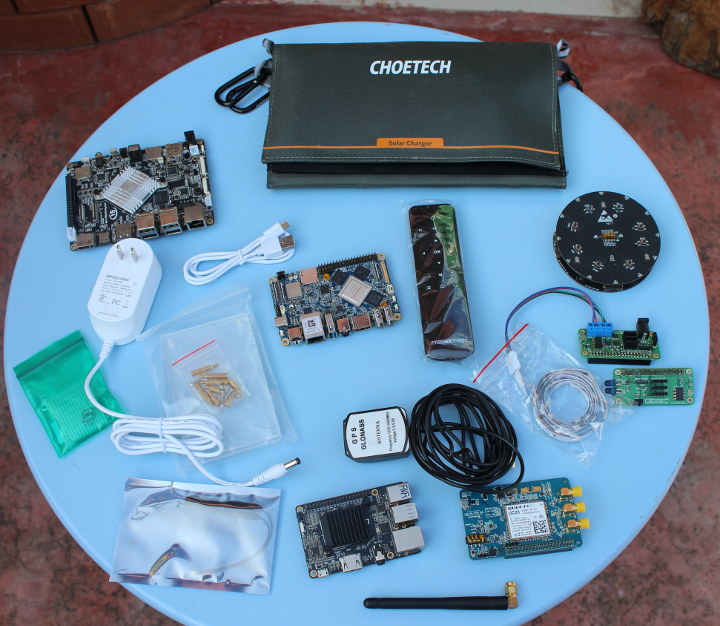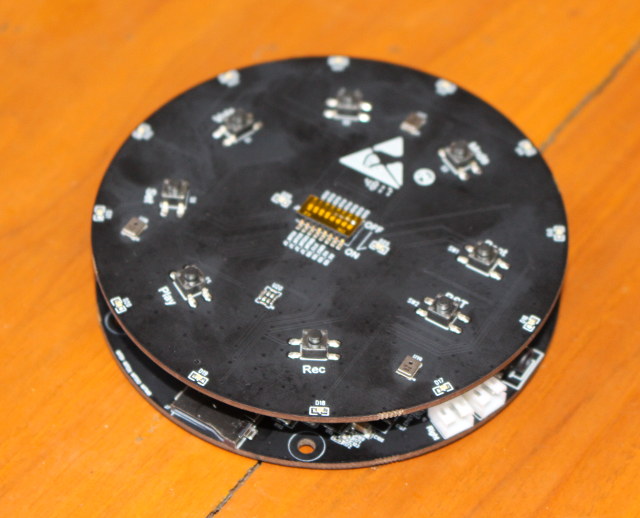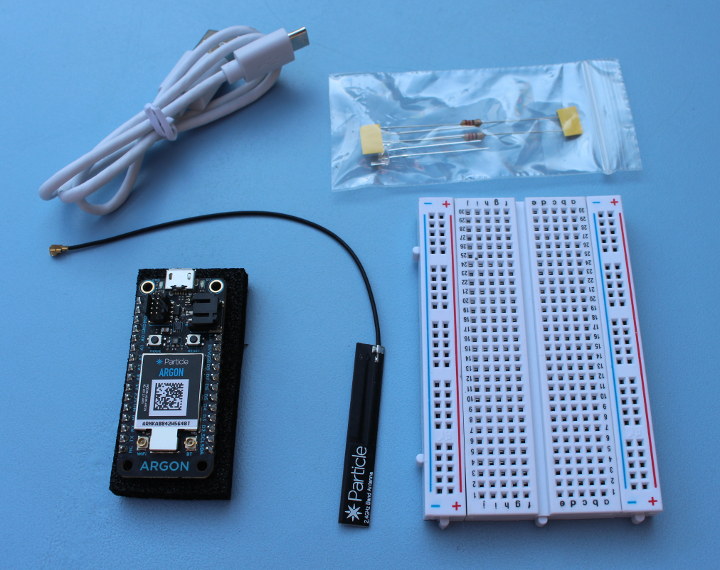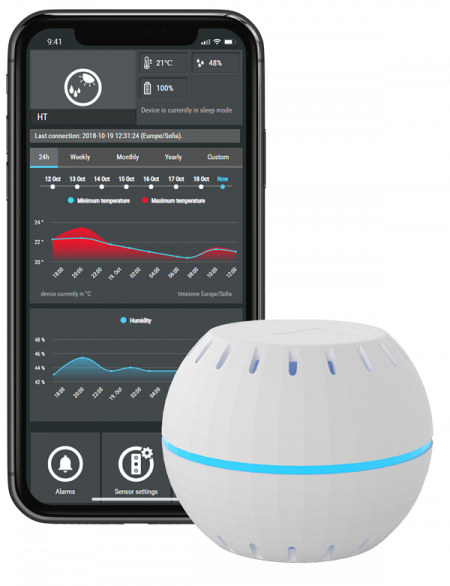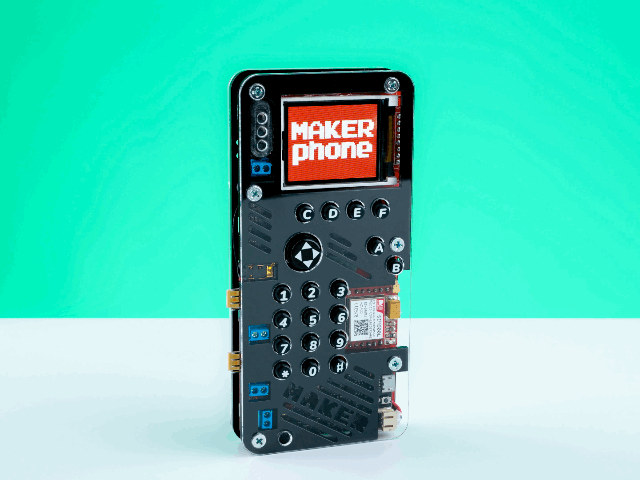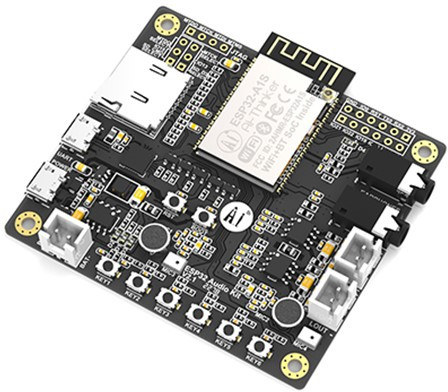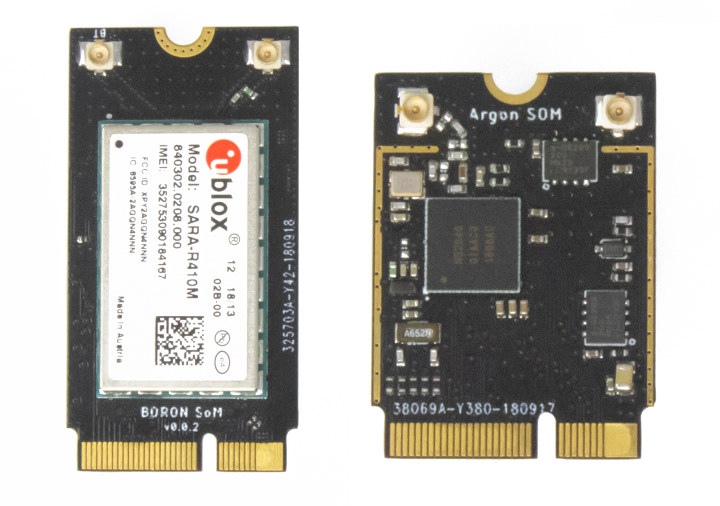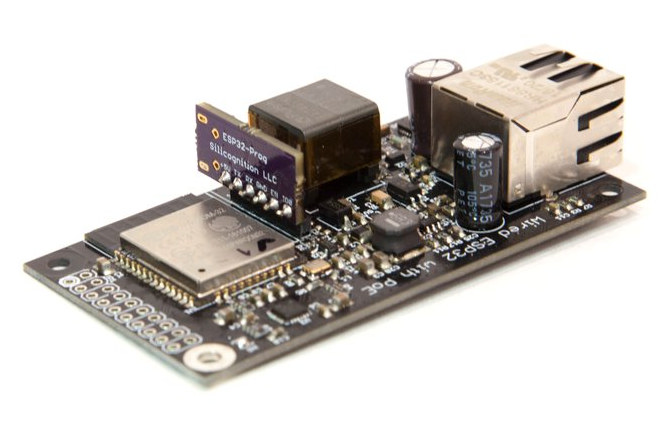We just had a week of fun on CNX Software with our yearly “Giveaway Week” activity where 7 prizes – from development boards to Raspberry Pi add-on boards or solar chargers – were randomly given away to people who entered by leaving a comment. The winners are in, with Asia starting strong, but Europe quickly taking the lead, and the US ending up the giveaway with a great (again) finish. Here’s the full list of winners: Videostrong VS-RD-RK3399 development board – Việt trần, VIETNAM CHOETECH Solar Charger – Erki, ESTONIA ESP32-LyraTD-MSC audio mic HDK – Ron, The Netherlands ROC-RK3328-CC development board – Dainis, LATVIA (a second time winner having previously won during Giveaway Week 2016) ThaiEasyElec 3G GPS Raspberry Pi Hat – zmlopez, SPAIN ANAVI Infrared and RGB strip pHAT – Joe, USA NanoPC-T4 development board – Jeffrey, USA I’ve just send all 7 packages earlier this afternoon. Hopefully, the […]
Giveaway Week – ESP32-LyRaTD-MSC Audio Misc HDK
ESP32-LyraTD-MSC is a smart audio hard development kit based on ESP32 WiSoC that I plan to send to one of my readers as part of Giveaway week. I had the chance to test ESP32-LyraTD-MSC with Baidu DuerOS voice assistant back in February which requires you to speak Mandarin, but now the board has become more useful outside of China with the release of Espressif ESP-ADF audio development framework and support for Amazon Alexa and Google Assistant. To enter the draw simply leave a comment below. Other rules are as follows: Only one entry per contest. I will filter out entries with the same IP and/or email address. Contests are open for 48 hours starting at 10am (Bangkok time) every day. Comments will be closed after 48 hours. If comments are open, the contest is still going on. Winners will be selected with random.org, and announced in the comments section of […]
Particle Mesh IoT Development Kit Review – Part 1: Unboxing
Back in February of this year, Particle introduced three low cost IoT development boards based on Nordic Semi nRF52840 wireless chip supporting “Particle Mesh” networking based on the 802.15.4 radio in the chip and OpenThread implementation of Thread IoT communication protocol. The company recently announced they were now shipping the kits pre-ordered earlier this year, and released two IoT development tools based on Node-RED and Visual Studio Code. Particle contacted me as well as to find out whether I was interested in reviewing their latest WiFi / Bluetooth / Mesh kit, and I’ve just received the bundle, which comes with a bunch of items, so I decided to write an unboxing post first to have a first look at the hardware, before playing with it in one or two weeks. Particle Mesh IoT Development Kit Bundle Unboxing That’s what I got from UPS… From top left to bottom right: The […]
Shelly H&T is a Battery Powered ESP8266 WiFi Temperature & Humidity Sensor
WiFi and long battery life do not usually go hand-in-hand, but as we’ve seen recently, companies have managed to design battery powered WiFi cameras that are said to last up to a year on a charge. So for simpler WiFi devices it should be feasible to last over a year, and that’s what “Shelly H&T” – an ESP8266 based battery-powered WiFi temperature and humidity sensor has apparently achieved, with claims of up to 16 months battery life. Shelly H&T specifications: Connectivity – 802.11 b/g/n WiFi (Wifi 4) Sensor – Temperature & humidity Battery – 1x CR123A battery good for up to 16 months Dimensions – 35 mm Ø sphere with flat top/bottom The firmware supports MQTT, and a Rest API, and works with Alexa, Google Home, and home automation suites like OpenHAB, Home Assistant, or Domoticz. The sensor is “open source ready”, meaning you’ll be able to flash your own […]
$94 MAKERphone DIY Mobile Phone Supports MicroPython, Arduino IDE, and Scratch (Crowdfunding)
If you ever wanted to buy a mobile phone that you can assemble yourself, RePhone Kit Ctreate going for $59 is a nice option, but in truth it does not exactly look like your typical phone with its almost square shape. It’s also good to have more option, that’s exactly what MAKERphone is offering with a DIY mobile phone targeting the educational market. Beside the educational value of the assembly also involving some soldering skills depending on the selected kit, kids will be able to learn to program the phone with MicroPython, the Arduino IDE (C language), and/or Scratch visual programming. MAKERphone kit content and specifications: MAKERphone circuit board with 8x user LEDs for backlight (and special effects), 4-way mechanical joystick, 12-button numeric keypad, A, B, C, D, E, and F buttons, DS3231 RTC chip, vibrator… Main microcomputer module based on Espressif Systems ESP32 WiSoC with 802.11 b/g/n WiFi, Bluetooth […]
$16 ESP32-A1S ESP32 Audio Development Kit Comes with 2 Microphones, Audio Jacks & Headers
Espressif ESP32 WiSoC can be integrated into various applications, and earlier this year Espressif Systems released ESP32 LyraTD MSC Audio Mic HDK (Hardware Development Kit) which I could test with Baidu DuerOS using Mandarin. Since then the company released the ESP-ADF Audio Development Framework that beside Baidu DuerOS, now supports Google Assistant and Amazon Alexa, so you don’t need to speak or learn Chinese to use the kit! 🙂 Another ESP32 audio board was the similarly named ESP32-LyraT, and now we have at least more more option with Seeed Studio selling ESP32-A1S WiFi + Bluetooth ESP32 audio development kit for $16.90 on their store. ESP32-A1S ESP32 audio development kit specifications: Wireless Module A.I. Thinker ESP32-A1S module based on ESP32 dual core Tensilica CPU clocked at up to 240MHz with 520 KB SRAM, and 8MB on-module PSRAM 802.11 b/g/n WiFi and Bluetooth 4.2 LE Storage – Micro SD card slot up […]
Particle Unveils Mesh SoMs and IoT Developer Tools
Earlier this year, Particle unveiled three IoT development boards based on nRF52840 Bluetooth 5/802.15.4 WiSoC and supporting Particle Mesh, which interestingly is not based on Bluetooth Mesh or even Bluetooth, and instead relies on Thread specification/OpenThread implementation, and the 802.15.4 radio of the chip with Bluetooth only used for the initial setup stage. Particle announced the shipping date (October 2018 or… this month) for their Mesh boards pre-ordered in February, as well as three new products in a recent blog post. One of the products is a family of system-on-modules compatible with Particle Mesh, while the other two are related IoT developer tools. Particle Mesh SOMs The Particle Mesh SOMs will have similar names and features as corresponding Particle mesh developers kits such as Boron (NB-IoT / eMTC + BLE + Mesh) and Argon (ESP32 WiFi, BLE + Mesh), but with an edge connector and designed as enterprise-grade, production-scale version […]
wESP32 ESP32 Board Supports “Isolated” PoE (Crowdfunding)
Olimex introduced their ESP32-POE board a few months ago, and started selling it for 17.50 Euros last month, but it’s always good to have more options and Silicongnition has designed another ESP32 board with power over Ethernet named wESP32. wESP32 board specifications: Wireless Module – Espressif Systems ESP32-WROOM-32 module with WiFi 802.11n (WiFi 4) and Bluetooth 4.2 LE connectivity Connectivity 10/100M Ethernet (RJ45) with auto-MDIX allowing the use of both straight and cross-over Ethernet cables Wi-Fi 802.11 b/g/n and Bluetooth v4.2 BR/EDR (via ESP32 module ) Expansion – Unpopulated 20-pin header with 3.3 V, V+ power, and 15 of the ESP32 GPIOs Power Supply Default 12 V output setting for V+ provides 12.95+ W of power Optional (bridge solder jumper) 5 V output setting for V+ provides 5 W of power IEEE 802.3at Type 1 Class 0 compliant PoE 3.3 V output with up to 6 W of power (taken […]


